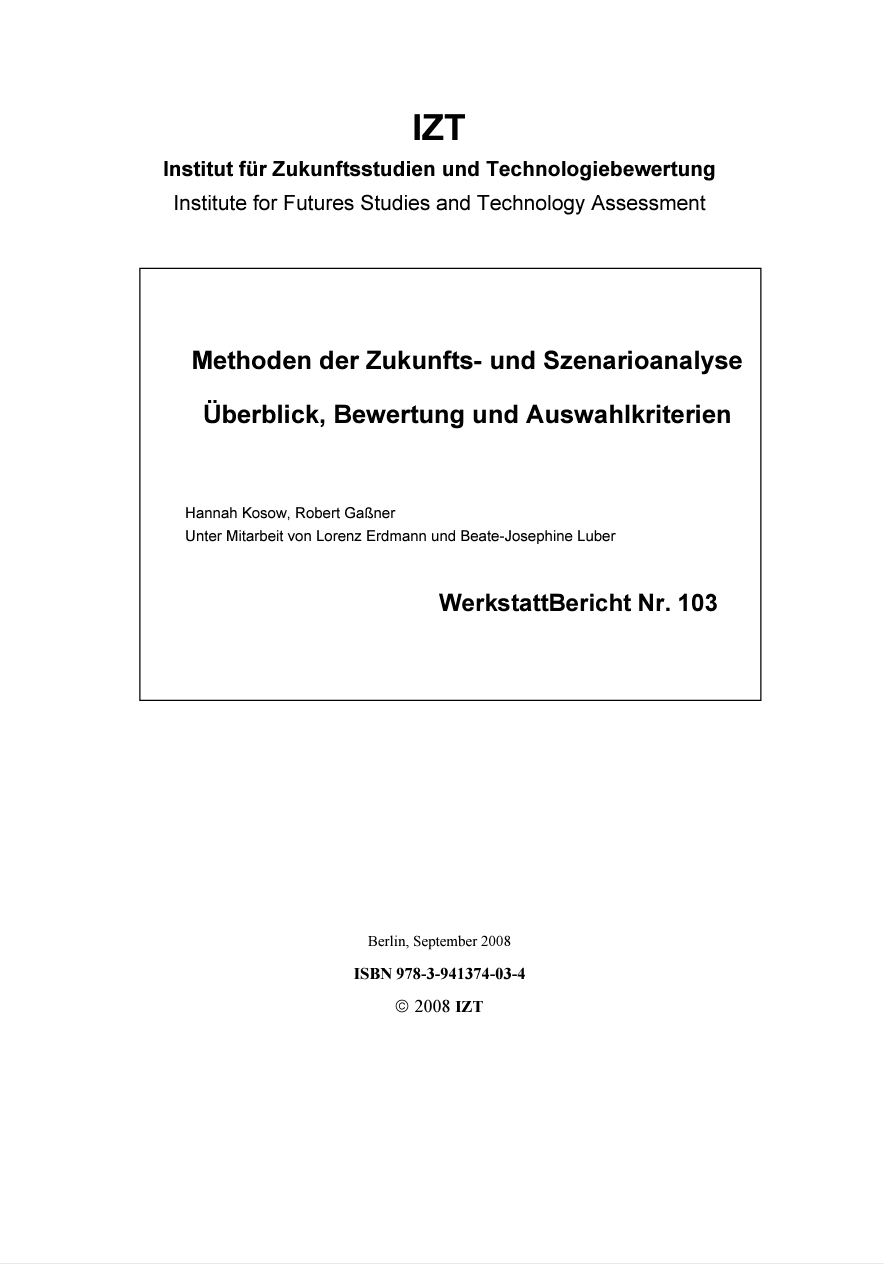Methods of future and scenario analysis
Abstract
In view of the increasing complexity and uncertainty of the social and natural framework conditions, e.g. globalisation, climate change, dynamics of the energy and raw materials markets, security risks and conflicts as well as technological upheavals, it is more important than ever to reflect on today's decisions with foresight and to orient them towards the future. Working with scenarios is a central tool for this. This study provides a structured overview of the many variants of scenario methodology, including important marginal and transitional areas to other methods of futurology. Three ideal-typical groups of scenario techniques (scenarios based on trend extrapolations, systematic-formalised scenario techniques and creative-narrative scenario techniques) are used to explain prerequisites and origins, commonalities and differences, strengths and weaknesses. In excursuses, examples of hybrid method combinations and scenario transfer techniques are discussed. A practical guide in the form of a "checklist" is also included, which makes it possible to concretise the methodological design of foresight projects on the basis of concrete decision-making questions, i.e. in particular to clarify whether and how scenario work can be used purposefully within the framework of such a project.
